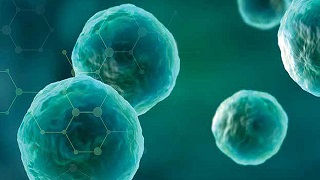
The 2021 International Space Station Research and Development Conference (ISSRDC) featured a fireside chat on biomanufacturing in space. Gary Rodrigue, MBA, director of programs and partnerships at the Center for the Advancement of Science in Space (CASIS), moderated a discussion with William Wagner, PhD, director of the University of Pittsburgh’s McGowan Institute for Regenerative Medicine. The discussion focused on the value of space-based biomanufacturing and the critical role of the orbiting laboratory in advancing this research area.
Spaceflight studies over the last decade have shown that microgravity can enable a better understanding of fundamental biology and accelerate advancements in health care and medical technologies. Utilizing the low Earth orbit environment for biomedical research could lead to discoveries not possible on Earth. One area that has potential to provide both benefits to Earth and economic value is biomanufacturing in space. Biomanufacturing is the use of biological and nonbiological materials to produce commercially relevant biomolecules and biomaterials for use in preclinical, clinical, and therapeutic applications.
In 2020, CASIS, manager of the International Space Station (ISS) U.S. National Laboratory, hosted a Biomanufacturing in Space Symposium together with the McGowan Institute for Regenerative Medicine. The symposium brought together thought leaders in the areas of regenerative medicine, tissue engineering, and space-based research. The goal of the symposium was to identify the most promising opportunities to leverage the ISS for research and development (R&D) to advance space-based biomanufacturing. The symposium identified multiple opportunities in three key areas: disease modeling using microphysiological systems (also called tissue chips) and organoids, stem cells and stem-cell-derived products, and biofabrication. A perspective paper developed from the symposium was recently published in Preprints. In addition to Dr. Wagner, McGowan Institute for Regenerative Medicine strategy and business development officer Patrick Cantini is a co-author on the paper.
The ISSRDC session with Dr. Wagner reviewed the current state of biomedical research on the space station and highlighted outcomes from the symposium. The session also discussed how the ISS National Lab is uniquely positioned to enable R&D to advance space-based biomanufacturing and drive a robust biomanufacturing market in low Earth orbit.
The 10th annual ISSRDC is being held virtually August 3-5. Dr. Wagner’s session took place August 3, 1:30-2:00 p.m. EDT. ISSRDC is free to attend, although registration is required. To learn more about ISSRDC, view the latest agenda and speakers, and register, please visit www.issconference.org.
Illustration: U.S. International Space Station Research Laboratory.
Read more…
U.S. International Space Station Research Laboratory News Release
2021 International Space Station Research and Development Conference (ISSRDC)
Abstract (Giulianotti, M.; Sharma, A.; Clemens, R.; Garcia, O.; Taylor, L.; Wagner, N.; Shepard, K.; Gupta, A.; Malany, S.; Grodzinsky, A.; Kearns-Jonker, M.; Mair, D.; Kim, D.; Roberts, M.; Loring, J.; Hu, J.; Warren, L.; Eenmaa, S.; Bozada, J.; Paljug, E.; Roth, M.; Taylor, D.; Rodrigue, G.; Cantini, P.; Smith, A.; Wagner, W. Opportunities for biomanufacturing in low earth orbit: current status and future directions. Preprints 2021, 2021080044 (doi: 10.20944/preprints202108.0044.v1).
